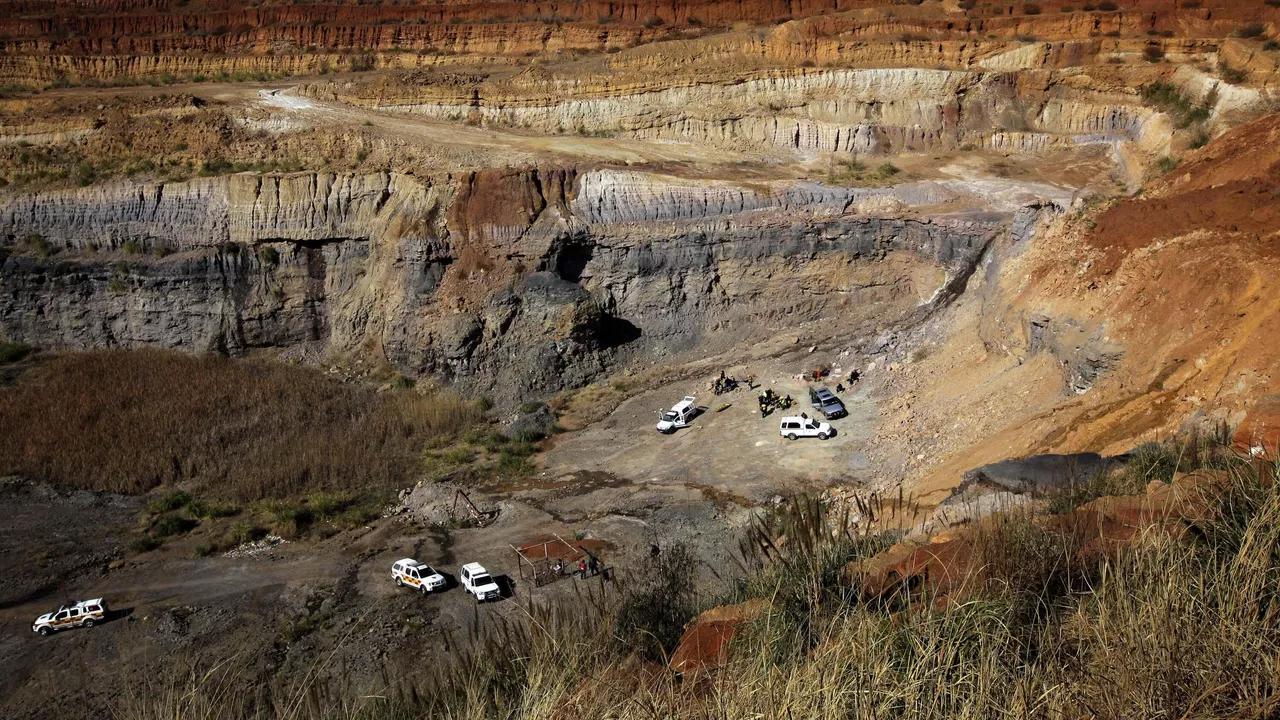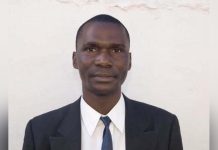Africa-Press – Gambia. The Africa-Europe Foundation (AEF) has outlined 13 recommendations aimed at reshaping cooperation on transition minerals (TMs), calling for a decisive break from extractive models towards a partnership based on mutual benefit, equity and sustainability.
The proposals come as the African Union (AU) and the European Union (EU) prepare for the start of a new institutional programming cycle in 2025 and the 7th AU-EU Heads of State Summit set for November in Angola.
With Africa home to 30% to 40% of global TM reserves and Europe seeking secure supplies to meet its green, digital and defence goals, the AEF said both continents must forge a shared agenda to ensure balanced and resilient mineral value-chains.
Senior Executive Vice President, Afreximbank Group, Denys Denya, speaks to ESI Africa about the critical need of prioritising the interests and well-being of local mining communities in the extraction and processing of Africa’s mineral resources
The AEF’s Scoping Paper – Revamping Cooperation on Transition Minerals: A Strategic Agenda for the Africa-Europe Partnership – warns that without deeper collaboration, the EU risks losing ground to competitors such as China, while African countries could miss opportunities for industrialisation and job creation.
It highlights barriers including weak infrastructure, policy incoherence, financial constraints and the colonial legacy that continues to undermine trust.
The AEF argues that the moment is opportune to move from fragmented initiatives to a comprehensive AU-EU Action Agenda on TMs.
If implemented, it said the recommendations could create a more equitable, transparent and strategic partnership, helping Africa build value-chains and Europe secure reliable supply.
AEF’s 13 recommendations on transition minerals in Africa
Develop an EU-AU Vision for Transition Minerals: take and test the best ideas from the Africa Green Minerals Strategy (AGMS), the EU Critical Raw Materials Act (CRMA), the EU Clean Trade and Investment Partnerships (CTIPs) approach, and international strategies like the UN Panel on CETMs to identify pragmatic pathways towards sustainable mining, up- and downstream manufacturing, increased local value addition and greater mobilisation of local capital in the lead-up to the 7th AU-EU Summit.
Rethink Europe’s Positioning: on its approach to transition minerals by moving beyond traditional extraction-focused partnerships with Africa. Joint ventures could be established with African companies in TM mining, supply-chains, processing and manufacturing, supported by financial instruments, such as VCF, to ensure African firms can gain access to the capital they need, and facilitate technology transfer and skilling. Such investment in African industries could be linked to EU security of supply of processed TM (in CMRA). Positioning Africa as both a supplier and a growing market for value-added products and TM, including renewable energy solutions, would unlock mutual growth opportunities.
Unpack and revise existing EU-Africa strategic partnerships on Critical Raw Materials (CRM): to better align with the EU Global Gateway Investment Package and EU Member States’ approach, and African national priorities and regional-continental frameworks.
Map EU/Africa strategic actors along targeted TM value-chains: to identify EU and African industrial actors with relevant capabilities to form productive partnerships, training exchanges and joint activity along mining, supply chain, refining and manufacturing value-chains.
Provide a reality check on the EU’s CRMA and Public vs Private sector dynamics: to recognise the EU’s political ambitions may not align with what is currently feasible in the market. This would mean either incentivising the private sector to invest, or revisiting CRMA targets. For example, the 40% of EU processing target could combine EU processing with participation in processing partnerships in African countries, with EU supply guarantees.
Support a ‘Critical Mineral Pact’ and binding treaty for COP30: Africa and Europe should support Brazil and Colombia, who are leading on a global binding treaty on TM traceability based on the principles of equity, justice and value addition at source set out in the UN report on Critical Energy Transition Minerals (CETMs).
Set up an Africa-Europe Traceability Framework: to ensure that minerals processed in regional partnership refineries are sourced responsibly, cover the whole value chain and improve minerals governance.
Leverage the regional dimension of transition minerals: encourage the establishment of regional processing hubs and specialisation of neighbouring African countries, to gain benefits from scale. Support such projects with traceability mechanisms, waivers on export levies to stimulate local processing and fiscal revenue-sharing mechanisms so that benefits flow equitably to participating countries. Regional projects will only materialise if political leaders and commercial actors see tangible benefits from such projects.
Enhance the capacity of revenue authorities and mineral tax regimes: through capacity-building programmes, revenue authorities partnering, revision of mining codes, clear tax guidelines, and better coordination between the public and private sector to improve compliance and transparency. Traceability should be integrated with tax operations to track mineral flows and ensure accurate taxation. Governance and corruption risks must be addressed through stronger regulatory frameworks and an Africa-Europe taxation partnership to support best practices and trade monitoring. Continuous dialogue between stakeholders will help refine tax policies and align strategies with evolving industry and community needs.
Engage with the ASM mining sector: artisanal and small-scale mining is of great significance across Africa, accounting often for half of mined output. It generates great damage to forests, soils, landscapes and water supplies, and is strongly linked to conflict, corruption and insecurity. An Africa-Europe partnership focusing on ASM formalisation, traceability, and law enforcement could strengthen mineral supply chains and improve security of supply.
Recognise the role of women and youth in mining: both groups represent a significant part of the mining sector, though often ignored, and should be included in decision-making processes and assisted to access training and skills development, to encourage leadership and help deliver safer working conditions. Identify and support gender and youth advocates.
Build a Sustainable and Responsible Supply of Transition Minerals: Africa and Europe should both move towards circular economy strategies, prioritise secondary raw materials, and adhere to environmental and social standards aligned with global biodiversity and climate goals. Mandatory safeguards should be integrated into trade agreements to protect ecosystems and human rights.
Consider the risks of Deep-Sea Mining (DSM): the renewed global impetus behind DSM puts the Africa-Europe partnerships on TM and ocean governance under threat, due to its economic and ecological risks. Scientists argue that recycling and land-based resources can meet mineral demand without seabed exploitation, while DSM risks irreversible harm to marine ecosystems. In the absence of environmental safeguards, Africa and Europe should jointly advocate for a moratorium or precautionary pause.
Europe’s approach to minerals in Africa requires a mindset shift
The AEF said that the evolving geopolitical landscape necessitates a re-evaluation of Europe’s approach to transition minerals in Africa.
“By acknowledging the significance of effective governance of mineral value chains and viewing the African continent not just as an exporter but also as a market with industrial potential and job opportunities, in partnership with Africa, Europe can promote more balanced and mutually beneficial outcomes.”
This strategic shift, it noted, is not only timely but essential for enhancing Europe’s competitiveness and security of supply in the global economy while supporting Africa’s development goals and industrialisation aspirations.
esi-africa
For More News And Analysis About Gambia Follow Africa-Press






